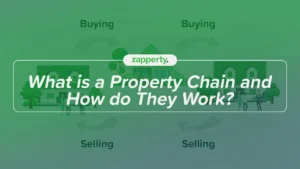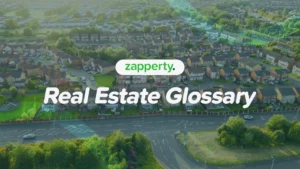When you’re buying a new property, you invariably need a mortgage. The process of arranging a mortgage relies on many things – from your capital and income, to the condition of the property you intend to buy.
At the start of the process you’ll be given something called a Mortgage in Principle, before you get a Mortgage Offer. It’s important to understand the difference between these, and how long each lasts. So, this short article will answer the questions: what exactly is the difference between a Mortgage in Principle and a Mortgage Offer? Do Mortgage Offers expire? If so, how long does a Mortgage Offer last and can it be renewed?
Where do you start?
Getting things ready for a mortgage can take time and effort. Preparing everything you need usually happens long before you submit an application or even speak to a lender. You might prefer to pay off any outstanding debts or rearrange your savings before applying. Then you’ll have to make sure all the relevant paperwork is in place.
Despite all this, your chosen lender is still not guaranteed to give you a Mortgage in Principle or make a Mortgage Offer. You lenders will want to ‘stress test’ your finances to make sure you can still meet repayments even if interest rates rise.
A mortgage application will involve giving the lender a stack of information, including but not limited to:
- ID documents
- Credit report
- Proof of address
- Proof of income
- Financial records
Many of these records typically need to date back at least three years before a lender accepts them.
What is a Mortgage in Principle?
A Mortgage in Principle (MIP) is where whoever is lending you the money, agrees ‘in principle’ how much you could potentially borrow. This is based on your financial information only and is no guarantee of a mortgage.
Essentially, an MIP is a first step, while a Mortgage Offer is the final confirmation of the loan.
When do I get a Mortgage in Principle?
Ideally, you’ll get a Mortgage in Principle before you even start viewing houses. It’ll help give you clarity about your price range etc. However, you cannot make a full mortgage application until after your offer on the house has been accepted.
What’s next? – a Mortgage Offer
Once your offer is accepted, your lender will look at the house you want to buy and complete their own valuation on how much it is worth. This is for their benefit, not yours, but it will affect how much they are willing to lend you – conditional on their agreeing to the sale price.
A Mortgage Offer is a much more formal legal document from your lender than a Mortgage in Principle. The Mortgage Offer sets out their agreement to lend you a specific amount to purchase a particular property. It also outlines the terms and conditions of the loan, including things like interest rates and repayment terms.
Why do you need a Mortgage Offer?
- It’s a legal commitment from your lender to make the funds available to you when you need them.
- It shows the seller you can afford the property.
- It includes an independent valuation
- It includes critical conditions like surveys and insurance, which must be met before completion.
- It shows your legal commitment to the loan and repayment terms.
- It makes you a more ‘credible’ prospect for the property sellers.
How long does it take to get a Mortgage Offer?
Once you submit your application, it typically takes up to one month to receive a mortgage offer. This can vary depending on the lender and your circumstances – especially if interest rates fluctuate.
Can a Mortgage Offer be withdrawn?
Yes, a Mortgage Offer can be withdrawn. Which is often why many house sales fall through and chains get broken – the longer the chain, the more likely that someone’s Mortgage Offer will expire or fall through .
You’ll be told the conditions for withdrawal when you get your Mortgage Offer. This usually includes things like a big change of your circumstances such as a significant loss of income.
You will almost certainly lose your Mortgage Offer if the lender discovers you have provided inaccurate information in your application.
Do I have to accept a Mortgage Offer?
No. Once you get a Mortgage Offer, it’s totally up to you whether you decide to accept it. You can also search for a different deal if you choose.
Can I negotiate on a Mortgage Offer?
Probably not. You need to realistically afford any mortgage you agree to, so it’s extremely rare for a lender to accept any negotiation on the offer they make you.
The numbers will have been carefully calculated, so, unless any of these have changed radically since the Mortgage Offer was made (e.g. a significant salary increase), you’ll be unlikely to have success.
It is better to shop around and contact other lenders and get a new offer from them. Different lenders have different ways of calculating how much they will lend you. Just because one bank has set your offer at a specific price does not mean it will be the same everywhere else.
Can I extend my Mortgage Offer?
Most lenders allow extensions, especially if there’s a good reason for the delay (e.g., property chain issues). Contact your lender as soon as possible to discuss your options – there might be fees involved, so check the terms.
If an extension isn’t possible, start the mortgage process again with a new lender. It is also usually possible to ‘port’ your Mortgage Offer – and transfer it to a new property.
Can a Mortgage Offer expire?
Because it relies on up to date financial information, a Mortgage Offer lasts between three and six months but the precise time frame usually varies depending on the lender. Once your Mortgage Offer expires, you will have to re-apply for another.
Risks of Mortgage Offer Expiry
A mortgage offer is a critical step in the home-buying journey, but it comes with an expiration date. If you’re not prepared, it could derail your plans, leaving you scrambling for alternatives. So, how can you avoid the pitfalls, minimise setbacks, and keep your property purchase on track?
Understanding the Risks of Expiry
Mortgage offers are typically valid for 3 to 6 months. That might seem like plenty of time, but the house-buying process is notorious for delays. Have you considered how these risks could affect your plans?
- Fluctuating Interest Rates: Imagine finally finding your dream home only to realise your mortgage offer has expired and interest rates have climbed. Your monthly repayments could suddenly become unaffordable.
- Market Uncertainty: Shifting property prices or stricter lending criteria can change your affordability or even your eligibility.
- Additional Costs: Reapplying for a mortgage? Be prepared for expenses like new valuations, credit checks, and admin fees.
- Potential Rejection: A change in your financial circumstances, such as losing your job or taking on more debt, could mean you no longer qualify for a new offer.
Take Anna, for instance. She thought her six-month window was plenty of time, but delays with her property chain pushed her timeline beyond the offer expiry. Not only did she face higher interest rates, but reapplying also meant paying for another valuation and additional checks. “If I had been more proactive with my broker,” she said, “I might have avoided all the extra stress and costs.”
Strategies to Minimise Mortgage Offer Expiry Risks
The good news? You can reduce the risks with some smart planning.
-
Work with a Mortgage Broker
A broker can be your secret weapon in this process. They:
- Keep track of deadlines so you don’t have to.
- Help negotiate extensions or renewals if delays happen.
- Find lenders offering more flexible terms to suit your situation.
Think about it—wouldn’t it be a relief to have someone in your corner handling the tricky stuff?
Want to avoid falling victim to property-related mishaps? Read Property Scams: A Guide to Protect Your Home.
-
Stay Organised and Track Important Dates
It’s easy to let deadlines sneak up on you, but a little organisation goes a long way.
- Set Reminders: Use your phone or a planner to track critical dates, like your mortgage expiry and exchange deadlines.
- Check In Regularly: Keep in touch with your solicitor to ensure everything is progressing as planned.
- Plan for Delays: Have a backup plan for potential hold-ups in surveys, legal checks, or property chains.
-
Communicate with Your Mortgage Provider
Your lender isn’t just a faceless institution—they’re your partner in this process. If delays are looming:
- Request an extension as early as possible.
- Ask about additional costs or requirements for extending your offer.
- Make sure your documents, like proof of income, are up to date to avoid unnecessary back-and-forth.
-
Build Flexibility into Your Moving Budget
Unexpected costs can throw a wrench into your plans. Budget for:
- Extra surveys or inspections.
- Fees for extending your mortgage offer.
- Possible increases in legal or conveyancing costs.
What About a Mortgage in Principle?
A Mortgage in Principle (MIP) is like your starting point—it gives you an idea of how much you can borrow, helping you set realistic expectations. While it doesn’t guarantee a full mortgage offer, it’s a great tool to streamline your planning and avoid surprises.
Stay Informed, Stay Prepared
Do you feel overwhelmed by all the moving parts in the house-buying process? That’s normal—but knowledge is your best defence. For example, understanding how inherited properties with outstanding mortgages affect your finances can prevent costly mistakes.
Learn more about this topic in What Happens If You Inherit a Property with an Outstanding Mortgage.
How long does a mortgage offer last?
Because it relies on up to date financial information, a Mortgage Offer lasts between three and six months but the precise time frame usually varies depending on the lender. Once your Mortgage Offer expires, you will have to re-apply for another.
In conclusion
Your Mortgage Offer is a vital part of your formal contract with your lender, outlining the terms of your home loan. It follows a Mortgage in Principle and is a crucial step in the homebuying process, confirming the lender’s commitment to provide the necessary funds for a specific property. Once accepted, and you are ready to proceed with the property transfer you will need to complete the TR1 form to officially transfer the ownership. As long as your circumstances stay the same, the mortgage offer usually lasts three to six months.
Has your house sale fallen through due to your mortgage? At Zapperty, we buy any home in any condition for cash, whatever the reason, in as little as 7 days. Get in touch today to see how it works and get your free cash offer.




